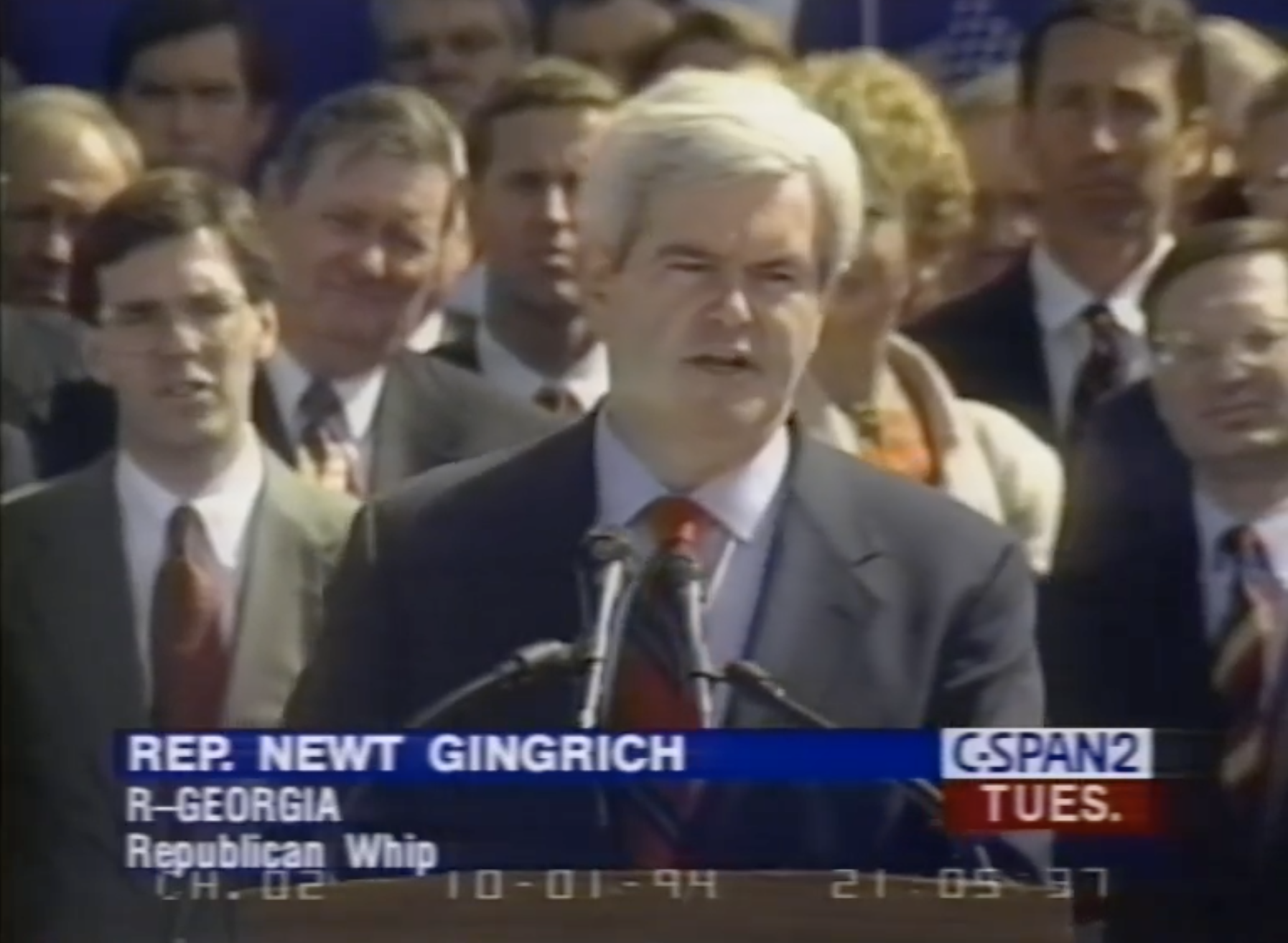
Unity and Power
Six weeks before the ‘94 midterm elections, House Republicans rolled out the Contract with America, which enabled the party to regain a majority in the House for the first time in 40 years. It was tangible proof that when the party spoke with one voice – when it spoke like Newt – it was stronger and more successful at the polls.
The Contract, signed by more than 300 Republican candidates for Congress, was Gingrich’s signature act, one that achieved the political power conservatives had so long desired. That achievement vindicated his decision to nationalize the local races – what David Winston in Roll Call years later called a violation of the long-held truth that all politics is local. It marked a turning point in congressional politicking and in the political narrative over the next several decades.
Although Gingrich and Dick Armey are credited with writing the Contract with America, much of it was carefully market tested – like the GOPAC training materials – by pollster Frank Luntz. As Luntz explained at the time to The Washington Post’s Michael Weisskopf, he had gathered “the most negative, hostile voters I have ever assembled” to identify phrases that aroused the most anger (such as choosing between “career politicians” or “lifetime job”). Luntz also solicited their feedback on which issues to list first, what cover design was most compelling, and whether party labels were a big turn-off.
The result united the party’s candidates around a single narrative: With Democrats in charge in Washington, government is the problem. And it led to an increase in turnout among Republican voters in every region of the country.
According to the Pew Research Center, following a steep downward trend that began in 1991, public trust in the federal government in 1994 fell to its lowest point in more than 40 years, falling from 46% to 19%.
It also produced an increase in turnout among Republican voters in every region of the country and demonstrated that a monolithic party with a narrow popular appeal can excite voters and dominate elections. It’s a model the party has followed since, leaving little room for those who stray from the party line and leading to a resurgence of the derogatory label, RINO – Republican In Name Only, and ultimately to primarying and censuring those who prove more loyal to the Constitution than the GOP.

